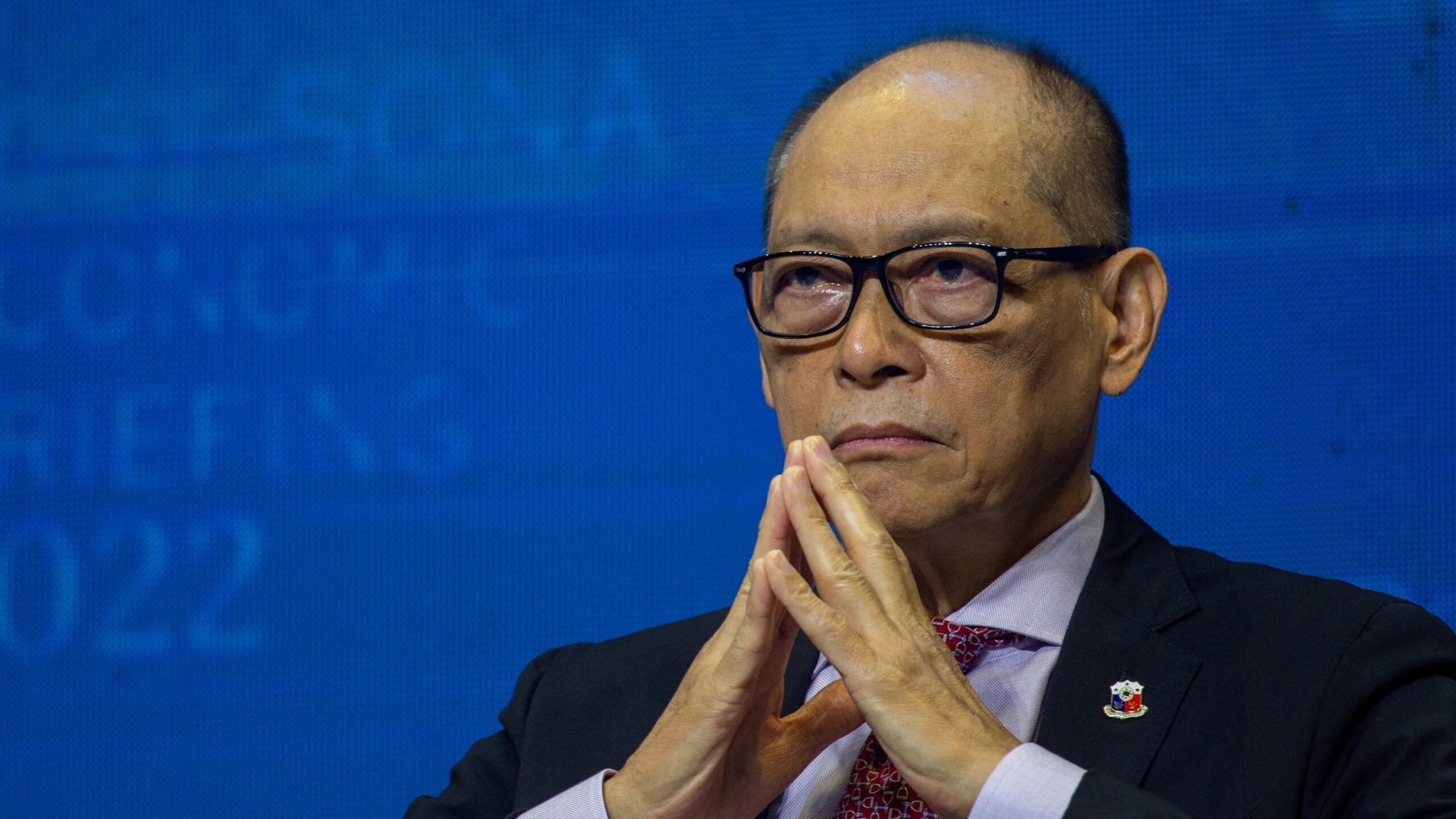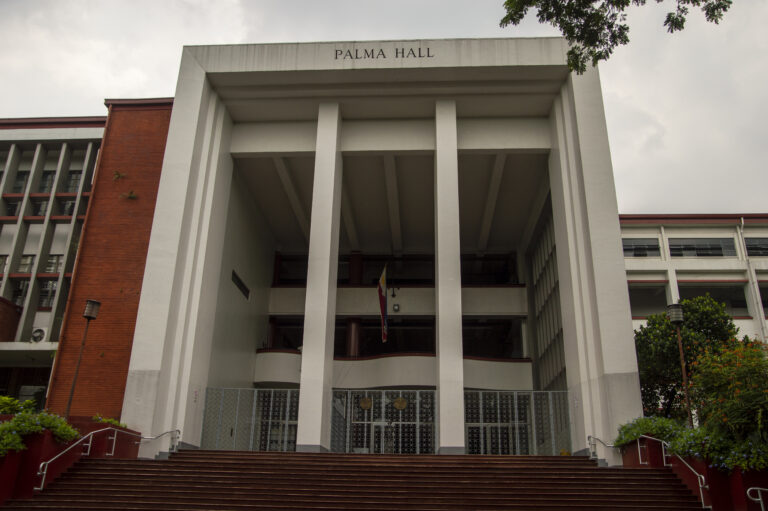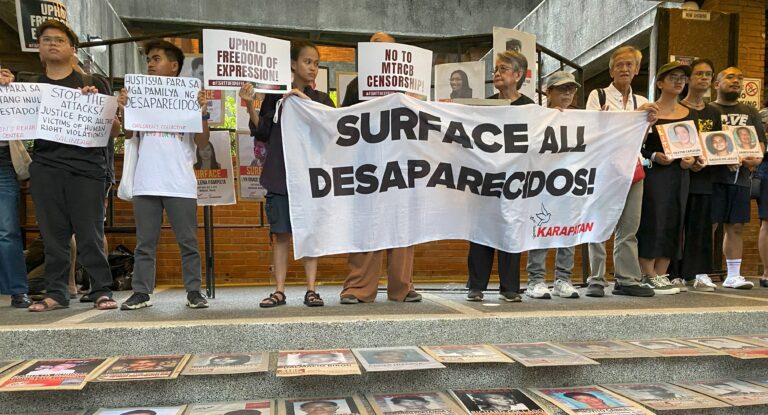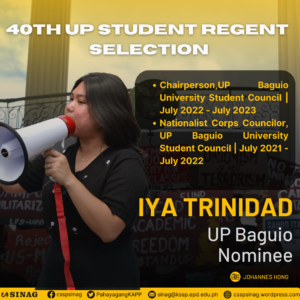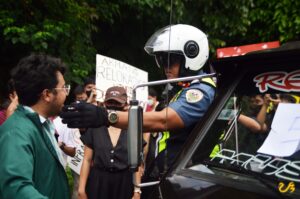Finance Secretary Ben Diokno, who has been ossified in the state’s economic management team for decades, publicly claimed that the Universal Access to Quality to Tertiary Education is “unsustainable” and hinted that the historic legislation be repealed.
Diokno also claimed that the free tertiary education policy is “anti-poor” and that the fiscal priority for the government is to enhance basic education. However, these pronouncements are the typical apologia of neoliberal has-beens who pursue our country’s national development through the crisis-laden, decades-old market-dominated economic logic that facilitated the drain of wealth from the country’s majority to the coffers of state and big business.
These policies, they say, are meant to give everyone equal opportunities—a new kind of liberalism that maximizes man’s self-interest. But, in fact, there is really nothing new in neoliberalism.
Contradicting economic logics
Economics has evolved into a diverse discipline. But the hegemony of neoliberal thinking, in theory and in practice, cannot be overlooked.
Neoliberalism is a contentious concept but the question of ‘for whom’ lies at the core of the debate. For its proponents, neoliberalism advocates for the freedom of the individual to act within self-regulating institutions and rules. It means enforcing liberty and property rights in an anarchic world. For its opponents, neoliberalism is an offensive of the ruling class through the state to open up markets and let their capital rule them to subjugate the working class.
One side argues that (political) economy primarily concerns the individual while the other says that it is the collective will of society. In a more critical appraisal, one side fights for the ruling class and the other fights for the oppressed classes. Class struggle permeates the contradicting logics of the neoliberal has-beens and progressive social movements who debate over policy.
At its core, the fundamental political-economic question is “who gets what, why, and how?”.
Understanding Diokno and his logic
I am no economic expert but I have taken enough Economics classes to understand the economic logic upon which Diokno draws his claims from. Interestingly, this debate on the Free Tuition Law is a class activity we had in my Economic Policy class at the UP School of Economics. So, for now, let us attempt to understand Diokno’s orthodox position.
First, he says that the law is unsustainable. It is possible that the government may not be able to sustain the program if there is no adequate budget for it, especially if it is running a deficit. Especially with the grave impact of the COVID-19 pandemic, the government had to borrow much but it cannot generate more money. With no funding, the program cannot be sustained.
Second, he says that the law is anti-poor. Government data cites that around 80-90% of the recipients of the Free Tuition Law hail from middle class to upper class families. Since the government provides a blanket subsidy through laxed admission and retention processes, the program is “really a subsidy to those who can pay for their college education”. So, by not specifically subsidizing those most in need, the program induces deadweight loss to society.
Third, he says that the government should focus more on basic education. Aside from being a constitutional duty of the government, developing basic education “increases the chance of (gaining entry into) SUCs”. In this sense, improving basic education subsidizes more youth.
Fourth, he says that the law should fix the number of students who can enter state universities and colleges for the budget to be adequate. Keeping a small number of eligible students will be much easier for the government since it will decrease the subsidy it gives and deregulate the education market so as to decrease inefficiency.
In essence, in this logic, education is generally a commodity to be sold in the “free” market.
Understanding antitheses to Diokno
The antitheses to Diokno’s claims are not merely economic logic but also relies on political and historical thinking since his opponents are not merely the homo economicus. Diokno’s opponents are people who have everything to lose if education is not deemed a right.
First, the question of sustainability is used as a smokescreen to the government’s budget priorities. According to a report from IBON Foundation, the Marcos Jr. government continues to funnel trillions into “big-business (infrastructure), debt-servicing, and military, while allocations for social services, agriculture and labor have been lacking.” If the government cannot sustain the relatively meager P21-billion budget for the Free Tuition Law, then how will it explain the sustenance of lavish Malacanang parties, endless overseas travels, and huge confidential and intelligent funds since last year?
Second, the idea of providing education is not contrary to the interests of the poor. The policy principle is correct and the flaws in the policy design should be the ones rectified. Providing free access to education is a means of democratizing education in a country already struggling to graduate its citizens in its schools. They say, “don’t fix what isn’t broken”. Fix the policy design.
Third, Diokno is correct that basic education should be reformed. However, basic education reforms—the MATATAG curriculum, K-12 program, inclusion of the education department in an anti-communist task force, the lack of budget for classrooms, books, and teachers—are more regressive and symptomatic of a government that does not learn from its past mistakes. After all these reforms do not address the education crisis and brain drain that impede development.
There is no apparent contradiction between the basic and tertiary education as Diokno claims. As they say, “there is no such thing as free lunch”. Wouldn’t it be better for society as a whole to invest more of its wealth in education than fund environmentally-destructive infrastructure, cold-blooded murderers in the police and military, and service the debts we did not benefit from? Diokno offers nothing but false dichotomies as justification to gradually remove the free education program after all. But his logic fails to arrest the real culprit: an education system that nurtures its colonial roots, commercial gains, and anti-democratic operations.
Fourth, it is idiotic to fix the number of students who are eligible to receive free tuition subsidies when the goal of the policy is to provide and expand universal access to education! It is counterproductive to the law’s objective. Maybe, Diokno and his colleagues could start finding other ways of making room in the fiscal space for the budget to be adequate and they could start by reducing their million-peso salaries by a huge amount or block their proposed risky Maharlika Investment Fund.
Lastly, the Free Tuition Law is a historic victory of the youth and their allies because it is a product of decades-long struggle of the youth and student movement to assert that education is a right. And it is only a corrupt government that is afraid of a thinking and mobilizing social force. Furthermore, the fight to expand the coverage and increase funding for the law continues.
Burying the old, birthing the new
As we dialectically understood Diokno’s theses and the antitheses to it, the debate must end by looking at the larger structural implications on economic decision-making and the neoliberal hegemony. Marxist geographer David Harvey adequately summed up neoliberalism in three words: “accumulation by dispossession”. The rich get richer because the poor get poorer.
Diokno tried to turn this fact on its head. He wanted to twist that a policy meant to provide collective benefit is socially dangerous. Given the alternative of repealing the Free Tuition Law, wouldn’t that make everyone worse off? The most efficient and equitable option for the government is to retain the policy principle and fix the policy flaws in the law through a consultative, democratic, and pro-people forum. In the end, the goal of economics is not just to introduce efficiency but also to induce social equity, the genuine equality of opportunities.
After four decades of neoliberalism, the poor get poorer because the rich got richer. The pandemic magnified this fact in the Philippines. Economic decision-making has been biased towards the super-rich locals and multinationals, whether in the form of market liberalization, tax exemptions, privatization, and lack of government regulation. To paraphrase the Italian political theorist Antonio Gramsci, the old is already dying but the new cannot yet be born unless we, collectively, give birth to that society. This is a lesson on political economic transformations.
If we really want to invest in our education, we must learn that there is really nothing new in neoliberalism but an excuse for the rich to accumulate our misery and dispossess our wealth.
The featured image is from Reuters

